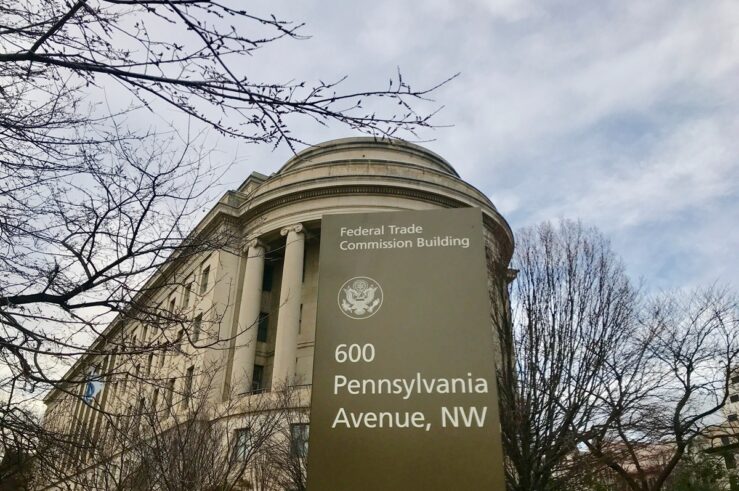Showing results for: “digital markets act”
David Levine on Behavioral Economics: The Good, the Bad and the Middle Ground
Behavioral economics: love it or hate it – there seems to be no middle ground. Lovers take the obvious fact people are not frictionless maximizing machines together with the false premise that economists assume that they are to conclude that all of economics must be wrong. The haters take the equally obvious fact that laboratories ... David Levine on Behavioral Economics: The Good, the Bad and the Middle Ground
What Influence Will the Section 2 Report Have? The Role of Political Ideology
There has been a great deal of speculation and discussion in this blog and around the antitrust community regarding what will happen with the DOJ Section 2 Report. Rightly so. It is a document with the potential to influence both agency monopolization enforcement decisions, international antitrust enforcement, and U.S. doctrine itself in federal court. What ... What Influence Will the Section 2 Report Have? The Role of Political Ideology
Why the Supreme Court was Correct to Deny Cert in Rambus
As TOTM readers are likely to know, the Supreme Court denied certiorari in Rambus, a course of action I had argued was the appropriate response to the arguments set forth in the Commission petition. I recently expanded the blog post into a short essay which I’ve posted on SSRN. It will also be available in ... Why the Supreme Court was Correct to Deny Cert in Rambus
The Best of All Possible Places to Work?
Are things looking up at the Federal Trade Commission (FTC)? Maybe, kinda, sorta? At the margin? That’s the agency spin. Before we get to the new public relations, let’s take a step back. Much ink has been spilled, and many pixels specified, over the performance of FTC management. Not a little of it has attended ... The Best of All Possible Places to Work?
Rybnicek: The Draft Vertical Merger Guidelines Would Do More Harm Than Good
In an area where it may seem that agreement is rare, there is near universal agreement on the benefits of withdrawing the DOJ’s 1984 Non-Horizontal Merger Guidelines. The 1984 Guidelines do not reflect current agency thinking on vertical mergers and are not relied upon by businesses or practitioners to anticipate how the agencies may review ... Rybnicek: The Draft Vertical Merger Guidelines Would Do More Harm Than Good
Artificial Intelligence Meets Organic Folly
In a May 3 op-ed in The New York Times, Federal Trade Commission (FTC) Chair Lina Khan declares that “We Must Regulate A.I. Here’s How.” I’m concerned after reading it that I missed both the regulatory issue and the “here’s how” part, although she does tell us that “enforcers and regulators must be vigilant.” Indeed, ... Artificial Intelligence Meets Organic Folly
Welcome to the TOTM Blog Symposium: Regulating the Regulators–Guidance for the FTC’s Section 5 Unfair Methods of Competition Authority
Regulating the Regulators: Guidance for the FTC’s Section 5 Unfair Methods of Competition Authority August 1, 2013 Truthonthemarket.com Welcome! We’re delighted to kick off our one-day blog symposium on the FTC’s unfair methods of competition (UMC) authority under Section 5 of the FTC Act. Last month, FTC Commissioner Josh Wright began a much-needed conversation on the ... Welcome to the TOTM Blog Symposium: Regulating the Regulators–Guidance for the FTC’s Section 5 Unfair Methods of Competition Authority
Tim Wu on Section 5 Guidelines Would Make the FTC Stronger and Better
I personally believe that a policy statement on Section 5 would be a very good thing for the Federal Trade Commission, especially over the long run. I think it would strengthen the agency, renew its distinct sense of purpose, and clarify the jobs of the attorneys who enforce the competition laws on a day-to-day basis. ... Tim Wu on Section 5 Guidelines Would Make the FTC Stronger and Better
Amateurism and Antitrust: The 9th Circuit Gets It Right
On September 30, in O’Bannon v. NCAA, the U.S. Court of Appeals for the 9th Circuit held that the National Collegiate Athletic Association’s (NCAA) rules that prohibited student athletes from being paid for the use of their names, images, and likenesses are subject to the antitrust laws and constitute an unlawful restraint of trade, under ... Amateurism and Antitrust: The 9th Circuit Gets It Right
Telemarketing, Technology, and Why the Telephone Sucks (and how to fix it)
It is a truth universally acknowledged that unwanted telephone calls are among the most reviled annoyances known to man. But this does not mean that laws intended to prohibit these calls are themselves necessarily good. Indeed, in one sense we know intuitively that they are not good. These laws have proven wholly ineffective at curtailing ... Telemarketing, Technology, and Why the Telephone Sucks (and how to fix it)
EU markets are more competitive than U.S. markets? Not so fast
A recent NBER working paper by Gutiérrez & Philippon attempts to link differences in U.S. and EU antitrust enforcement and product market regulation to differences in market concentration and corporate profits. The paper’s abstract begins with a bold assertion: Until the 1990’s, US markets were more competitive than European markets. Today, European markets have lower ... EU markets are more competitive than U.S. markets? Not so fast
Are State Consumer Protection Acts Really Little FTC Acts?
I’ve posted to SSRN my latest on state consumer protection litigation, Are State Consumer Protection Acts Really Little FTC Acts?, co-authored with Henry Butler (Searle Center, Northwestern University School of Law). It is forthcoming in the Florida Law Review. The project aims to empirically examine the similarities and differences between state and federal consumer protection ... Are State Consumer Protection Acts Really Little FTC Acts?






